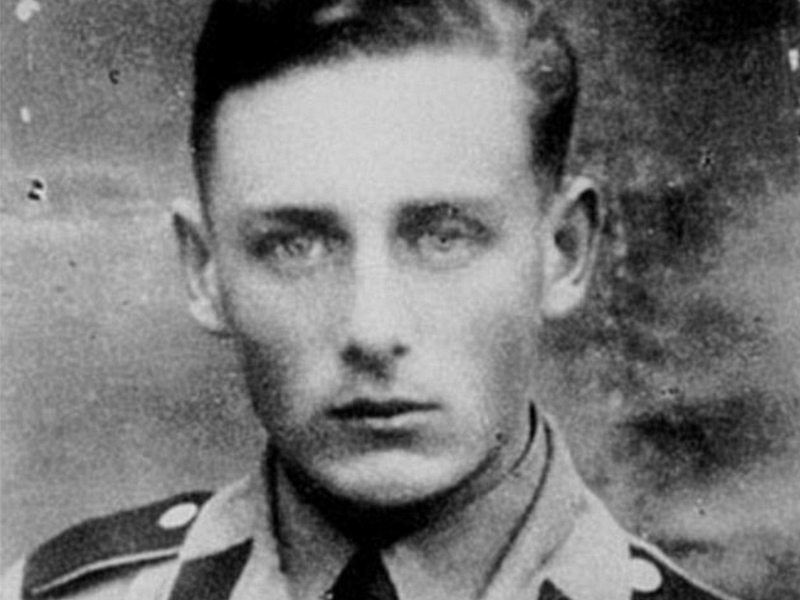Jewish groups in Canada are calling for justice after the Supreme Court of Canada rejected the federal government’s appeal in a case to revoke the citizenship of former Nazi Helmut Oberlander.
The Supreme Court ruled July 7 that it will not hear the government’s appeal of a lower court judgment that ordered the government to reconsider its decision to revoke Oberlander’s Canadian citizenship.
The 92-year old Waterloo, Ontario resident served as an interpreter for Einsatzkommando 10a, a mobile Nazi killing squad that murdered tens of thousands of Jews and other victims during World War II.
The Centre for Israel and Jewish Affairs (CIJA) and Canadian Jewish Holocaust Survivors and Descendants (CJHSD) expressed their disappointment with the Supreme Court decision in a press release they issued July 7, and say they urge the government to continue pushing to deport Oberlander.
“Oberlander was a member of a Nazi mobile killing unit that murdered more than 90,000 Jewish men, women and children during the Holocaust. He lied about his complicity in these atrocities and gained Canadian citizenship fraudulently. Based on these facts, he should be deported without further delay,” Shimon Koffler Fogel, CEO of CIJA said.
Nate Leipciger, a Holocaust survivor and the past co-president of CJHSD, said, “There is no time limit nor age consideration to bring the guilty to justice. The few remaining survivors are still suffering the loss of our loved ones and remember the brutality of the Einsatzkommando 10a.”
Recently, CIJA and CJHSD published an open letter to Minister of Immigration, Citizenship and Refugees John McCallum calling for Oberlander’s deportation.
Since 1995, the Canadian government has been trying to strip Oberlander, who was included on the Simon Wiesenthal Center’s list of most wanted Nazi war criminals in 2014, of his citizenship.
The Ukrainian-born, ethnic German immigrated to Canada with his wife in 1954, became a Canadian citizen in 1960 and ran a construction business in the Waterloo region.
The government’s multiple attempts to revoke Oberlander’s citizenship over the years have led to a series of appeals: In 2000, the federal court determined Oberlander had obtained citizenship through fraudulent means, either by lying on his application or failing to disclose his former association with a Nazi killing unit.
The government moved to revoke his citizenship but Oberlander appealed and in 2004 the case was sent back to Ottawa for a new decision.
In 2009, the Federal Court of Appeal ruled that the government was reasonable in finding that Oberlander’s participation in Einsatzkommando 10a made him complicit in war crimes, but said Ottawa needed to consider whether Oberlander had, as he’s claimed, acted under duress.
Ottawa subsequently rejected that idea and in 2012 it again attempted to revoke his citizenship.
Oberlander appealed first to the Federal Court and then to the Federal Court of Appeal, which sent the matter back to the government.
The Supreme Court’s latest decision means that in order to deport Oberlander Ottawa will have to prove he was a willing participant in the Nazi death squad’s activities.
“We can’t keep labeling him a criminal. There’s absolutely no evidence that he was. Just that he was forced to be part of this [Nazi] unit,” Ronald Poulton, Oberlander’s lawyer, told The CJN.
Poulton said the government had for years tried to apply the now outdated “guilt by association” law to Oberlander, alleging that he was complicit in war crimes because he had belonged to the Einsatzkommando 10a.
But in 2013, the Supreme Court ruled in another case that guilt by association is not sufficient grounds to be considered a war criminal.
He said that in a 1999 trial, two witnesses brought by the government – both former members of the Einstazkommando 10a – to testify that Oberlander had been part of the unit also testified that one couldn’t transfer from the killing unit.
“They said…if you tried to leave you’d be shot,” Poulton said.
Bernie Farber, former CEO of the Canadian Jewish Congress and a social activist, said that history has shown accounts of many soldiers who were placed in Nazi killing units but were able to transfer to other units without dire consequences.
“If a young Filipino woman makes one mistake on her [citizenship] application she’s deported immediately. Yet here’s a man who chose not to admit on his application he was part of a killing unit and remains in Canada,” he said
A media spokesperson from Immigration, Refugees and Citizenship Canada said that Canada had “sought leave to appeal to the Supreme Court of Canada because it felt strongly that this case raised issues of importance to all Canadians.”
She also noted that the government acknowledges the Supreme Court’s decision and is assessing next steps.









